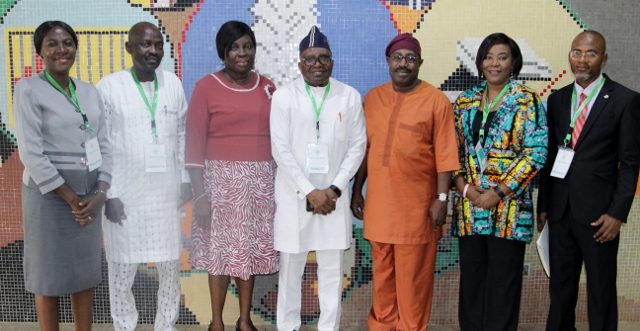The Independent Corrupt Practices and Other Related Offences Commission (ICPC) has charged members of the public to hold their leaders accountable for their actions while in office because without accountability, corruption cannot be eradicated from the society.
The ICPC Spokesperson, Mrs. Azuka Ogugua, fnipr, stated this recently during the November edition of the Actualizing Behavioural Change (ABC) Knowledge Series with the theme, “Corrupt Behaviour in Nigeria’s Public Sector: Simplifying a Complex Phenomenon” organized by the Nigerian Institute of Social and Economic Research (NISER) at Ibadan.
Quoting Robert Klitzgard’s formula which is “Corruption is equal to Discretion plus Monopoly minus Accountability (C=D+M-A)”, she asserted that there was need to hold leaders accountable for their actions and put proper mechanisms in place in order to have a Nigeria that will be free from corruption.
She went further to state that it was necessary to prevent corruption by conducting corruption risk assessments, which is a process of examining systems of organizations to check for areas of too much discretion and monopoly of power because such areas are prone to corruption.
In addition to these, organizations’ accountability mechanisms such as Anti-Corruption and Transparency Units (ACTUs), Standard Operating Procedures (SOPs), increased supervision, etc. must also be firmly in place to check the gaps.
She also advised that opportunities for corruption should be minimised to reduce the incidences of corruption among individuals.
Asked how the government can improve the fight against corruption, the Spokesperson suggested that government must set a good example by obeying the laid down laws, rules and regulations, and must be seen to enforce these law impartially, adding that funding to anti-corruption agencies should also be improved, while communication with citizens should be frequent, open and sincere.
She thereafter urged the citizens to take full ownership of the fight against corruption guided by the anti-corruption agencies, admonishing that people should act with integrity and not engage in any form of corruption as the law is no respecter of anybody.
Also speaking at the event, President and Senior Researcher, Policy Dynamics Inc. Canada Dr. Ivan Taylor stated that corruption is an individual thing and public corruption is the most endemic in the nation at large.
He stressed the need to use system thinking approach to eradicate corruption in order to reduce the opportunities prone to corruption in public offices.
Mr. Barth Feese, Executive Director, People Centered Development Initiative (PCDI) while contributing at the event said that individualism has been identified as a major level of corruption, and weak institution can be a tonic to corruption.
He advised that strengthening of the institutions and empowering of citizens must be the top agenda of any government.
Before the discussion segment, a research paper titled “Corrupt Behaviour in Nigeria’s Public Sector: Simplifying a Complex Phenomenon” was presented by Dr. Iyabo Olanrele and Dr. Sebil Oshota, Research Fellows of Economic and Business Policy Department (EBPD), NISER, which presented their results from their work in trying to simplify the complex phenomenon of corruption by examining the various channels through which corrupt behaviours can be tracked and controlled in Nigeria.
In her opening remark, the Director General of NISER, Prof. Anthonia Taiye Simbine, who spoke via Zoom, welcomed everyone to the event and wished the participants a fruitful deliberation and discussion.

